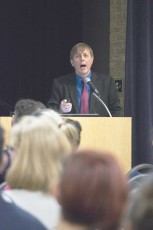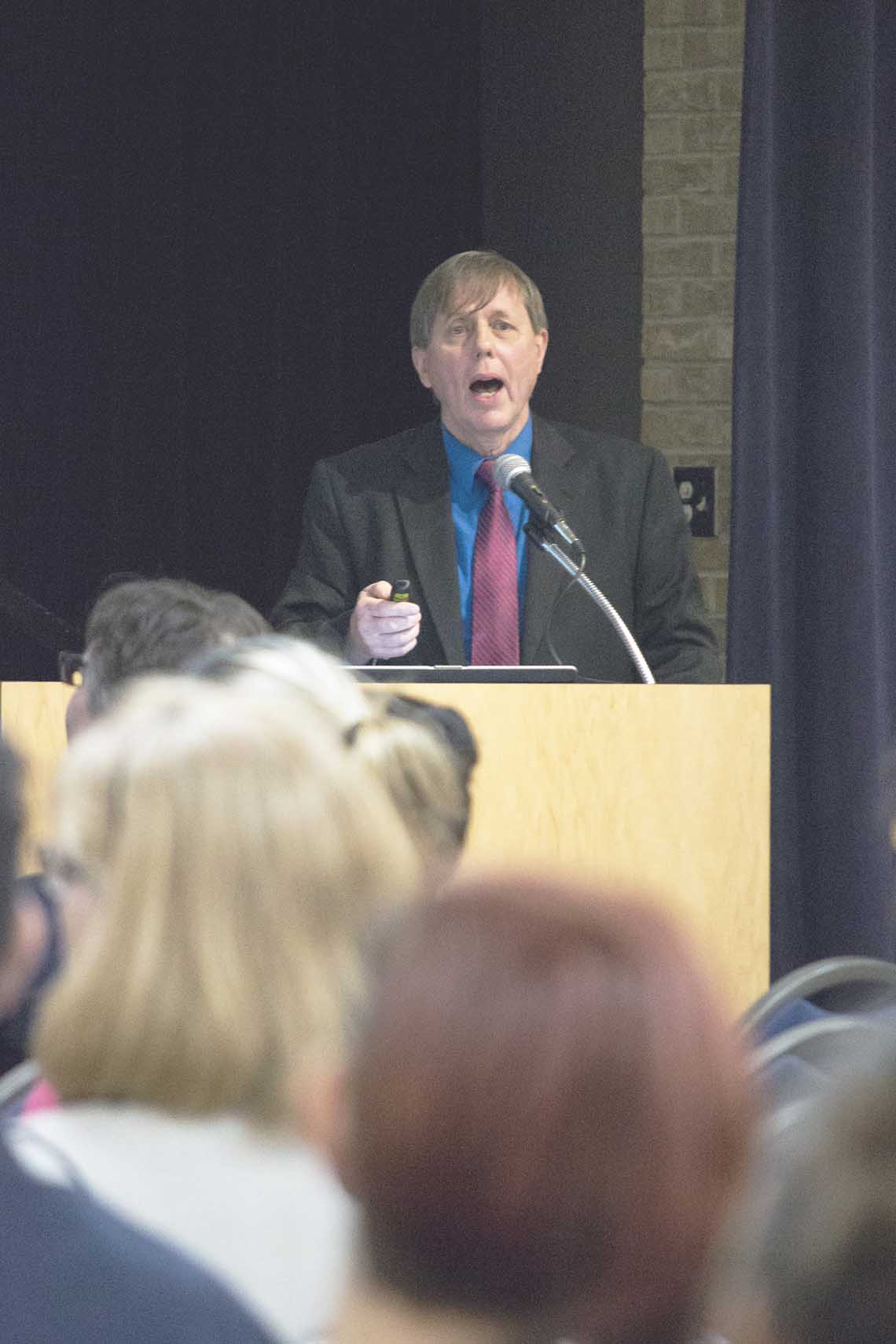By Tommie Owen/ reporter

Katelyn Townsend/The Collegian
Historical and philosophical viewpoints of the “Letter from a Birmingham Jail” written by Martin Luther King Jr. were discussed by instructors John Lundberg and Bryan Morgan on NE Campus Feb. 17.
“I wanted to learn more about Martin Luther King Jr.,” student Isaac Pewitt said.
Other students like Baleigh Keho had much broader ideas.
“It’s probably about race, and anything about that is a valuable lesson,” she said.
Lundberg began by telling the audience it was important to understand that the Civil Rights Movement was in full swing when the letter was written in 1963.
“The student sit-in at Woolworth’s and desegregation of the Montgomery bus system had just happened,” he said.
King continued to demonstrate even after a court order was issued ordering him to stop.
King wrote the letter in response to questions and criticisms from a group of white clergy. King tried to correct misconceptions and justify why he believed in nonviolent civil disobedience.
Lundberg painted a picture of King in a dark jail cell without a mattress and only sunlight to write by and only the newspaper margins and toilet tissue to write on.
“Injustice anywhere is injustice everywhere,” King wrote.
King said he was invited to Birmingham because the intensity had increased. Protesters began to refer to the city as Bombingham.
“It was flat out terrorism by the Klan,” Lundberg said.
Lundberg concluded by saying King adjusted his views before his death in 1968. His new views reflected Black Nationalism.
Speakers showed a film of an actor portraying King reading a portion of the letter from behind bars. The images displayed during the letter reading caused gasps and tears from some audience members.
“People just take freedom for granted,” student Bridget Faricy said.
Morgan encouraged the audience to read the letter in its entirety.
“I discovered it is well worth anyone’s time,” he said.

